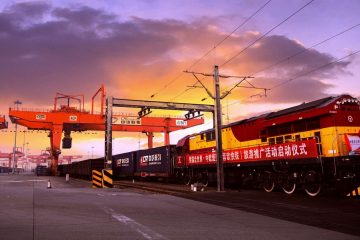
Is China’s Belt and Road Initiative Really What Interpreters Make of It?
Without question, the much-debated, mammoth Belt and Road Initiative (BRI), is a brainchild of China’s President Xi Jinping. Without question, Xi Jinping has further centralised his powers and, in the process, China has turned more authoritarian. Yet, understanding this gigantic infrastructure investment initiative simply as a top-down project, directed by an almighty leadership in Beijing, is more than questionable. The BRI is open, plural and ever-changing, and, to a large degree what interpreters, Chinese or otherwise, public or private, make of it. Following the pragmatic attitude which has characterised China’s leadership since Deng Xiaoping’s reforms in the 1980s (‘crossing the river by feeling the stones’), Xi Jinping inaugurated the BRI when a great deal of Chinese overseas investments was already …

London and the rest: regional transport disparities in the UK
Crossrail, still trumpeted as the largest construction project in Europe, and once held up as a paragon of a well-run, on-time and on-budget development, is now late and seriously over budget. Praise has been replaced by political infighting as the blame game gets into full swing and warnings that this will further imperil Transport for London’s (TFL) already shaky looking finances. However, hidden beneath the debris of mismanagement is something much worse: the willingness of the British government to plough vast sums into transport in London, whilst simultaneously underfunding transport in the rest of the country. Across the UK public transport has been de-regulated and privatised under policies originating in the 1980s, yet, London is a treated as a special …

Post-war voters as fiscal liberals
Are voters more fiscally conservative or fiscally liberal? Do they reward politicians who engage in deficit spending or those who show more fiscal restraint? To what extent does this depend on the country-specific context? The public choice literature finds that voters in developed democracies with strong institutional checks and balances, such as the US, UK, Canada, or Sweden, reward more accountable governments which spend the public’s money responsibly (e.g. Peltzman, 1992; Lowry, Alt and Ferree, 1998; Brender and Drazen, 2008). On the other hand a number of studies done in countries such as Argentina, Brazil, Spain or Russia suggest an opposite conclusion – voters reward incumbents who spend more and more freely (e.g. Jones, Meloni and Tommasi, 2012; Sakurai and …









